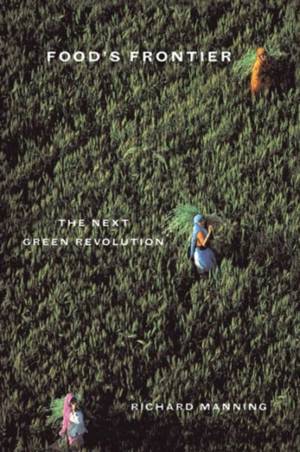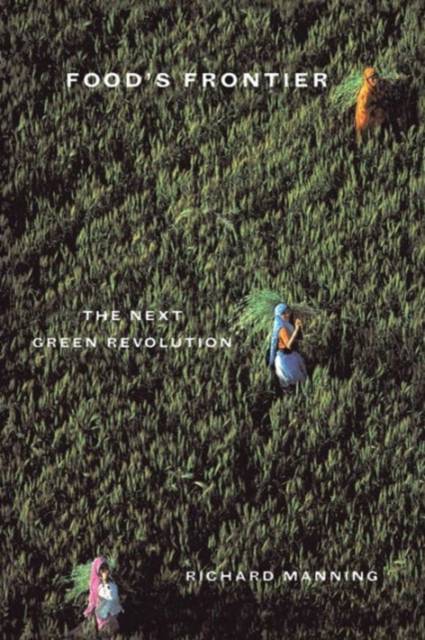
Bedankt voor het vertrouwen het afgelopen jaar! Om jou te bedanken bieden we GRATIS verzending (in België) aan op alles gedurende de hele maand januari.
- Afhalen na 1 uur in een winkel met voorraad
- In januari gratis thuislevering in België
- Ruim aanbod met 7 miljoen producten
Bedankt voor het vertrouwen het afgelopen jaar! Om jou te bedanken bieden we GRATIS verzending (in België) aan op alles gedurende de hele maand januari.
- Afhalen na 1 uur in een winkel met voorraad
- In januari gratis thuislevering in België
- Ruim aanbod met 7 miljoen producten
Zoeken
Omschrijving
Food's Frontier provides a survey of pioneering agricultural research projects underway in Ethiopia, Zimbabwe, Uganda, India, China, Chile, Brazil, Mexico, and Peru by a writer both well-grounded technically and sensitive to social and cultural issues. The book starts from the premise that the "Green Revolution" which averted mass starvation a generation ago is not a long-term solution to global food needs and has created its own very serious problems. Based on increasing yields by extensive use of pesticides, chemical fertilizers, and monoculture--agribusiness-style production of single crops--this approach has poisoned both land and farm workers, encouraged new strains of pests that are resistant to ever-increasing amounts of pesticides, and killed the fertility of land by growing single crops rather than rotating crops that can replenish nutrients in the soil. Solutions to these problems are coming from a reexamination of ancient methods of agriculture that have allowed small-scale productivity over many generations. Research in the developing world, based on alternative methods and philosophies, indigenous knowledge, and native crops, joined with cutting edge technology, offer hope for a more lasting solution to the world's increasing food needs.
Specificaties
Betrokkenen
- Auteur(s):
- Uitgeverij:
Inhoud
- Aantal bladzijden:
- 238
- Taal:
- Engels
Eigenschappen
- Productcode (EAN):
- 9780520232631
- Verschijningsdatum:
- 29/10/2001
- Uitvoering:
- Paperback
- Formaat:
- Trade paperback (VS)
- Afmetingen:
- 134 mm x 204 mm
- Gewicht:
- 244 g

Alleen bij Standaard Boekhandel
+ 91 punten op je klantenkaart van Standaard Boekhandel
Beoordelingen
We publiceren alleen reviews die voldoen aan de voorwaarden voor reviews. Bekijk onze voorwaarden voor reviews.









